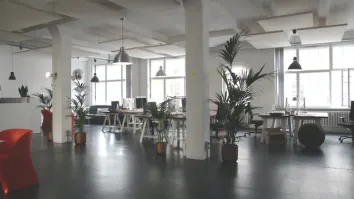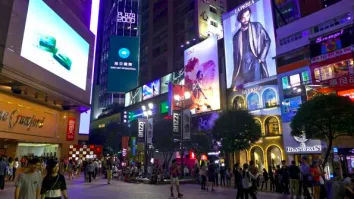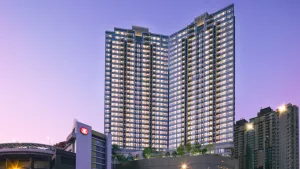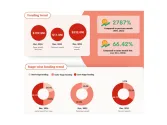
Here's how APAC property values are faring amidst COVID-19
3 in 5 real estate sectors saw values decline in the first half of 2020.
The WHO’s declaration of the COVID-19 pandemic on 11 March kicked off a challenging period for real estate asset values across the Asia-Pacific, with the majority of the 22 major markets Knight Frank tracked reporting an overall decline in values so far in 2020. While some markets are coming out of the trough with alleviating pandemic situation, some others continue to struggle with many cities seeing the resurgence of COVID.
Here’s more from Knight Frank:
The unprecedented crisis of the pandemic has exerted huge pressure on property asset values across the region. While value declines are a concern for existing holdings, on the flip side, this could represent opportunities for investors looking for long-term investments. In June 2020, International Monetary Fund (IMF) downgraded Asia's growth projection from zero growth to a 1.6% contraction in 2020, indicating stronger global headwinds as the impact of the pandemic continues to ripple throughout the world.
Despite the downward adjustment of IMF's growth forecasts, a strong rebound is still cautiously expected for all key economies in the region in 2021. Coupled with a low interest rate environment, quantitative easing operations in major markets as well as investors' perception of real estate assets as good investment for long-term capital appreciation, asset values in the region should see a steady recovery in the post-COVID-19 period.
Furthermore, as consumption patterns and corporate strategies have changed amid these unusual times, prime office and retail are expected to embed more technology and well-being solutions to adapt to the new normal; potentially further supporting their values.
Prime Residential
A bright spot, residential values across major gateway cities were resilient in H1 with 60% of them recording either stable or higher values. For example, Hong Kong's residential values generally remained stable despite economic recession and the local socio-political situation. The gateway cities of Australia and New Zealand remained stable, while Shanghai, Shenzhen, Seoul and Taipei recorded a growth in value in H1. Although some markets saw values falling, such as Singapore, the magnitude was generally mild.
The market is seeing the steady underlying demand for prime residential properties. Asian investors, which make up a significant component of demand in the region's residential markets, are looking both domestically and offshore for opportunities, which support value growth should COVID-19 comes under control. Owing to low-interest rate environment and falling rents, yields are expected to remain at low levels.
High-Tier Industrial
High-tier Industrial, such as logistics and data centres, has had the strongest value performance in H1 among all asset classes in nearly all key gateway cities. Beijing, Shanghai, Shenzhen, Seoul, Taipei and Penang have recorded value growth while values in other markets have generally remained stable. City lockdown, social distancing measures and the need of domestic biomedical production have significantly increased the importance of the sector across the region, supporting its value during this period.
Going forward, e-commerce driven demand is expected to increase further, coupled with a likely subsequent demand from the bio-medical and pharmaceutical industries. Work-from-home arrangements in the corporate and institutional sectors will boost demand for digital communication. As such high-tier industrial asset values are expected to rise further over the near term, particularly in Malaysia, Chinese Mainland, and South Korea. Again, with the interest rate staying low in the foreseeable future, yields are expected to remain at low levels.
For markets such as Hong Kong where online retailing was relatively underdeveloped before COVID-19, the pandemic could encourage wider application of online consumption and gain reliance on technology, benefiting long-term demand for data centres and logistics facilities.
Prime Office
Prime office experienced a tough first half as most of the region was under some form of lockdown or movement restriction, dampening economic activity, which led to fall in asset values. Mumbai, Seoul and Taipei were the better performers in H1 2020, recording value growth in their prime office sectors.
In the short term, a weak economy will continue to weigh on the prime office sector. Meanwhile, the pandemic allows remote working to be experimented with, which could lead to a longer-term negative impact on office demand. Corporate real estate strategies are expected to shift towards a more core and flexible or hybrid model. Demand is likely to shift towards buildings embedded with AI technology and health and wellness solutions, which will underpin their long term value.
Prime Retail
Not surprisingly, prime retail properties across the Asia Pacific region saw their asset values declined in H1, given the tumble of domestic footfall and international visitor arrivals.
While the sector will remain clouded by the pandemic, regions where COVID-19 showed solid signs of containment should see earlier recovery. This is particularly evident in Chinese Mainland, where its retail sector is witnessing positive signs as businesses and daily lives are generally resuming normal amid relaxed social distancing measures. This could provide lesson learned to other economies in the region, how a U-shaped recovery may be possible once the virus situation has come under control. Lastly, well-managed shopping centres with diversified tenant mix will be better placed to recover at the post- COVID-19 period.
High-end Hospitality
The high-end hospitality has not surprisingly been the hardest hit sector across the commercial real estate space given the reliance on business and leisure travel. In most markets, activities have pretty much come to a standstill over the past six months.
Before international travel resume, the resumption of domestic travel and local staycation could provide a relief to the sector, according to our observation in Chinese Mainland. Governments across the region have introduced various pilot initiatives to stimulate domestic tourism within their nations. Examples of these are Singapore’s ‘SingapoRediscovers’, and Japan's ‘Go To’ travel initiatives.
While domestic travel is the initial hope for the hospitality sector, it remains uncertain asset values can return to positive growth as it will hinge on the restart of international flights and travel. Nevertheless, we expect more countries in the region to encourage domestic travel once their COVID situation has been stabilised. This could kick-off the recovery of the hospitality sector. Hotel owners may also take this opportunity to renovate their hotels, or converted certain city hotels into commercial properties or co-living spaces.
Conclusion
Despite current challenges, our outlook for asset values is positive over the mid-to-long term as steady investment appetite remains in most markets. This is particularly the case in recovering markets such as Chinese Mainland and traditional safe havens like Australia and Singapore, or in more-volatile markets like Hong Kong where investors may be looking for more discounts.
Going forward, we expect yields to remain stable given low interest rates and quantitative easing measures around the globe. Prime assets with strong tenant covenants, tight vacancies, limited supply or high accessibility will better weather future headwinds.



















 Advertise
Advertise







